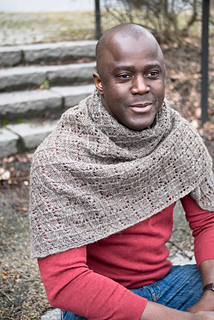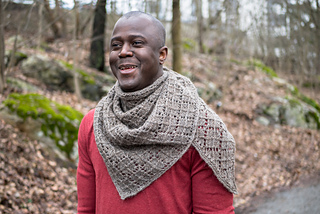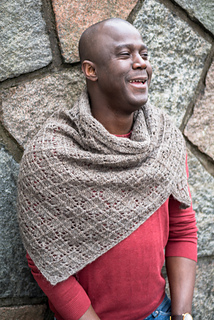patterns >  Linnea Ornstein's Ravelry Store
Linnea Ornstein's Ravelry Store
> Archibald




















Archibald
MULTIPLE PATTERN DISCOUNT
Get 20% off when you buy 5 or more of my patterns! No coupon code needed.
ARCHIBALD
Castles and kings; battles of clans; tartans and kilts. The history of the Scottish highlands is an interesting one and is lined with a strong textile tradition. The clansmen have long worn their woolen kilts in iconic woven patterns, each pattern representing their respective clan and family. Originally derived from the tartan of the clan Campbell of Argyll, the patterned sock with its argyle pattern has been worn with the kilt for centuries.
Archibald is a triangular shawl with an argyle texture, a result of combining simple lace and an overlaying diagonal stitch that travels along the pattern. The shawl is knit bottom up with increases on each right-side row, on either side just inside a simple garter stitch edge. It ends with a few rows of ribbing before the bind-off. To make the edges nicer, always slip the first stitch purlwise with the yarn in front, and knit the last stitch through the back loop.
Archibald is adapted for a locally produced yarn by OPPiNILS (www.oppinils.com), a farm in the North Swedish area of Härjedalen. The farm produces lovely wool from old rural breeds and cross-breds. This particular yarn is made from 80 % lambswool from the local unregistered breed Härjedalen sheep, mixed with 20 % wool from Jämtland sheep which is a Swedish merino cross with a very soft crimpy wool. The yarn has a gorgeous greyish brown rustic shade that photos can’t do justice. In this pattern, it produces a lovely tweedy look that feels like something that could have been worn in the ages of the 1st Duke of Argyll.
It is worth noting that this is a fairly rustic yarn from an old Swedish rare breed. This means that the yarn can be itchy to some. If you know that you are sensitive to wool and itchiness, it might be worth finding a soft merino yarn or, if you want a locally produced yarn, a wool yarn from Jämtland sheep.
INSTRUCTION VIDEOS
RT3: https://youtu.be/IS6yb7och74
LT3: https://youtu.be/Y_q4kUo4d2M
RTpu: https://youtu.be/AKz6_GZnMg8
LTpu: https://youtu.be/fegBTZ2ALMw
RT-dec: https://youtu.be/aB1uPAV__Qo
LT-dec: https://youtu.be/QJr8Vwgp3OE
RT: https://youtu.be/VyPdjRWcms0
LT: https://youtu.be/qKqNAxhTctA
- First published: April 2019
- Page created: April 10, 2019
- Last updated: November 8, 2023 …
- visits in the last 24 hours
- visitors right now





